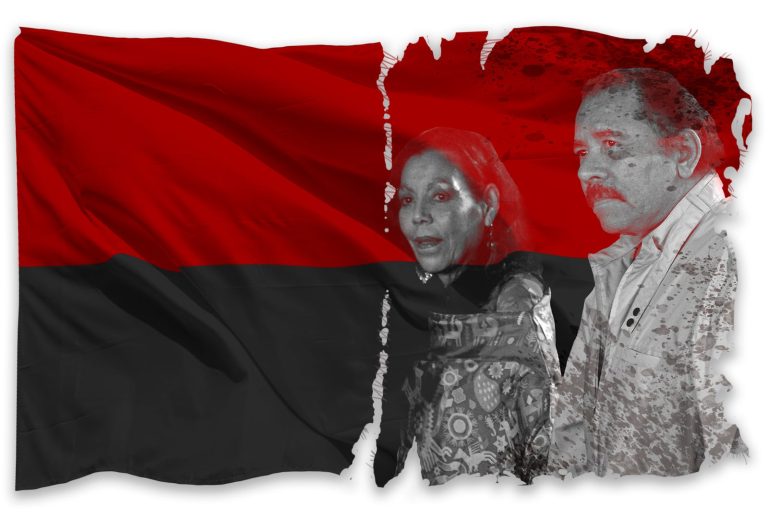17 de julio 2021

The Return of the Military

PUBLICIDAD 1M
PUBLICIDAD 4D
PUBLICIDAD 5D
If Ortega does not allow free elections, the international community needs to impose rigorous sanctions on his government.

I’ve been lucky to have known many Europeans who in their youth participated in the struggle of the Sandinista Revolution at the end of the 1970s. Their commitment to a cause so noble yet so far away, reminded me of the young people from all over the world who went to Spain to defend the Republic during the Spanish Civil War (1936-1939), joining what were known as the “International Brigades.” They were young and motivated by the desire for justice, and in solidarity with the struggle for freedom and democracy in opposition to a dictatorship and fascism.
I have seen some of the young people who fought against Somoza, afterwards, in organizations cooperating with Nicaragua from Germany, the Netherlands and Spain. One of them, Javier Nart, was with me in Managua as a legislator on mission from the European Parliament in January of 2019. All of the members of the mission lamented the departure from the movement that triumphed in 1979.
It is difficult for me to identify some of the revolutionaries from the ‘80s as the dictators of today. It pains me that the ideals of their struggle have transformed into an appalling craving for power. It saddens me that the political left champions repression, forgetting that democracy has some irrefutable rules, and that the Constitution and the rule of law are not the means to a supposedly loftier ideological end. They forget that there is no socialism without liberty. Socialism is liberty.
The events of April 2018 revealed the most deplorable characteristics of a government unable to comprehend the reasons for the protests, the longing for freedom, and the democratic and social demands of Nicaraguan society. Their resorting to repression was a surprising and frightening reaction by a government incapable of even acknowledging that some of its people were suffering and demanding changes.
In these three years since, I have kept informed on a process that sometimes sank into the darkness of repression, and sometimes offered the hope of dialogue and free elections. At the beginning of this year, I was living with the latter illusion.
In several conversations with Nicaraguan leaders, I expressed my opinion that electoral participation was the only way to transform the complaints and aspirations of 2018 Nicaragua into political power and democratic representation.
My logic was that boycotting the elections as a strategy would lead to inaction, desperation, internal division, and frustration with so many needs left unmet. Hopes that many Nicaraguans held –and continue to hold—, for democratic elections as an opportunity to recuperate a free country and build a democracy dedicated to peace and progress.
I thought that Ortega was confident in his victory, given the lack of unity among the opposition, and that he would allow the electoral participation of his rivals in order to demonstrate that he had the majority of popular support. I also assumed he would accept elections under conditions that were favorable to him and his party, and that he would try to obtain some international recognition, at least to avoid open questioning of his political legitimacy.
But I was wrong. I was naïve to believe that Ortega was willing to risk even a minimal chance of defeat.
The detention of all significant opposition candidates, the creation of totally artificial criminal cases, declaring various political parties illegal, the refusal to have a dialogue about the electoral law, the imposition of an Electoral Council totally aligned with the Government, the harassment and persecution of the media critical of the Government, and the refusal to admit international missions and human rights organizations into the country, all add up to a country without freedom, and an authoritarian, totalitarian government that eliminates the opposition, and stifles freedom and pluralism.
So, what can be done?
Ortega leaves us no alternative. If there are no free elections, the international community must not recognize them. The demand for authentic, democratic elections will weigh like the Sword of Damocles over his Government, from the first day of his new term. This will be the whole world’s condemnation the day after his rigged electoral victory.
International sanctions need to be increased, and a framework established by the European Union, the Organization of American States (OAS) and the United States should find the most effective way to implement them.
The Inter-American Commission on Human Rights (IACHR) and the UN Office of the High Commissioner for Human Rights’ (OHCHR) Central America Regional Office should begin the process in the International Criminal Court to bring charges against the Nicaraguans responsible for the repression that both agencies have denounced.
There is still time to stop this madness that has Nicaragua drowning in a dark well of repression and misery. If Ortega does not allow free elections, the international community needs to impose rigorous sanctions on his government.
*Former legislator of the Spanish Socialist Workers Party in the European Union, who presided over the European Parliament’s commission that visited Nicaragua in January of 2019.
This article was originally published in Spanish in Confidencial and translated by Havana Times
Archivado como:
PUBLICIDAD 3M
Ingeniero, abogado y político español retirado. Fue diputado de España en el Parlamento Europeo, y miembro del Parlamento Vasco. También fue ministro de la Presidencia de España y presidente de la Delegación Socialista Española en el Parlamento Europeo. Encabezó la delegación de eurodiputados que visitó Nicaragua tras la masacre orteguista contra la Rebelión de Abril, en 2019.
PUBLICIDAD 3D